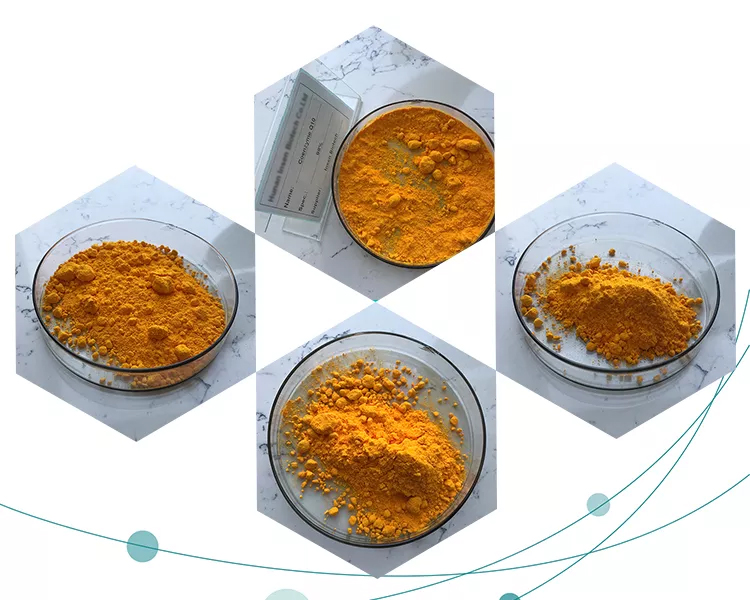Coenzyme Q10 (CoQ10), also known as ubiquinone, is a naturally occurring antioxidant that supports cellular energy production, particularly in the mitochondria. Coenzyme Q10 is popular as a supplement, with proposed benefits for heart health, energy levels, and other conditions.
Effectiveness of Coenzyme Q10
Research has shown Coenzyme Q10 to be potentially beneficial in several areas, although results vary:
- Heart Health: Coenzyme Q10 may support cardiovascular health by improving endothelial function, reducing oxidative stress, and supporting overall heart function. Studies have shown it may help lower blood pressure and improve symptoms in people with heart failure.
- Migraines: Coenzyme Q10 may reduce the frequency and severity of migraines. It’s believed to stabilize mitochondrial function in cells, potentially preventing the chain reactions that contribute to migraine attacks.
- Chronic Fatigue: Some people with chronic fatigue syndrome or fibromyalgia report increased energy levels and reduced fatigue when taking Coenzyme Q10, possibly due to its role in cellular energy production.

- Neurological Conditions: There is some evidence Coenzyme Q10 might benefit neurodegenerative diseases like Parkinson’s disease by protecting cells from oxidative damage and supporting mitochondrial function.
- Statin Side Effects: Statins, used to lower cholesterol, can reduce Coenzyme Q10 levels, leading to muscle pain or weakness in some users. Supplementing Coenzyme Q10 may alleviate these side effects.
Side Effects of Coenzyme Q10
Coenzyme Q10 is generally considered safe and well-tolerated, with few side effects, though some individuals may experience:
- Digestive Upset: Nausea, diarrhea, and stomach upset are among the most common side effects, particularly when Coenzyme Q10 is taken in higher doses.
- Insomnia: Some people report difficulty sleeping if Coenzyme Q10 is taken too late in the day.
- Mild Headaches and Dizziness: These are occasionally reported, though they tend to be mild and short-lived.
Special Considerations of Coenzyme Q10
1.Absorption: Coenzyme Q10 is fat-soluble, so it is better absorbed when taken with a meal containing fat or in a fat-based formulation (such as soft gels).
2.Form: Coenzyme Q10 supplements come in two main forms: ubiquinone and ubiquinol. Ubiquinol is the active, more bioavailable form, making it a better choice for individuals over age 40 or those with absorption issues.

3.Drug Interactions: Coenzyme Q10 may interact with certain medications:
- Blood Thinners: It may reduce the effectiveness of blood-thinning drugs like warfarin, so close monitoring is required if taken together.
- Blood Pressure Medications: Coenzyme Q10 can lower blood pressure, so when taken with antihypertensive medications, it may lead to overly low blood pressure.
4.Dosage: A typical dose ranges from 50-300 mg daily. Higher doses might be used in clinical settings but should be monitored by a healthcare provider.
5.Pregnancy and Breastfeeding: Safety of Coenzyme Q10 in pregnant or breastfeeding women is not well-established, so it’s best avoided unless advised by a healthcare provider.
Coenzyme Q10 supplements are well-studied, but individual responses can vary, so it’s recommended to consult a healthcare provider before starting, especially if you have existing health conditions or take other medications.
